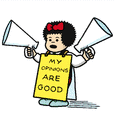|
When you live a nomadic life, you only keep what you can carry. When you give free food to a hungry person, there a physical limit of how much they can eat before they get full. When you allocate money to a modern human's bank account, it never fills. There's no point where they say "hold on, i can't have any more. " The Lakota have a word - wasicu - that pre-dates the arrival of white men. When white men got here, they were referred to as Wasicu often enough that they thought it meant "white person." What wasicu means, though, is (literally) "taker of the fat. " if you cook a buffalo roast, you get a beautiful meat primal with a layer of incredible fat (tastes like the best pot roast ever, has consistency of a jelly). Ideally, you cut the roast against the grain and every piece has a thin bit of that delicious fat. But if you just pull on the whole roast, you get a piece that's almost entirely fat that's about the size of one heavy portion. So a child or thoughtlessly selfish member of the tribe might run up to the food and grab the fat, leaving everyone else with lean meat. Someone that does that is called Wasicu. The Lakota consider theft to be a much lesser sin than lying. If someone steals from you, you learn that they are in need, and that those needs are going unmet. This is good to learn, as you can make adjustments. On the other hand, when someone lies to you, you learn that you can't trust their word. That is a much more unpleasant discovery. When the Lakota reach the black hills, they take their longest tipi pole into the woods to find a lodgepole pine that is taller than their tallest pole. They cut it down (laying tobacco), skin it, and leave it to season. Next time they roll through, they ditch their shortest pole and pick up the new pole. I do not think the greed we see with capitalism is standard human behavior in earlier civilizations. Capitalism, as a system, exploits human nature evoking behaviors that would not otherwise be expressed. Uglycat fucked around with this message at 17:01 on May 10, 2023 |
|
|
|

|
| # ? May 26, 2024 23:14 |
|
Uglycat posted:I do not think the greed we see with capitalism is standard human behavior in earlier civilizations. Capitalism, as a system, exploits human nature evoking behaviors that would not otherwise be expressed. Yep. The idea that given the opportunity every human being is hardwired to consume literally all resources around them like a Hungry Hungry Hippo and drat the consequences is what people are saying when they reference that as a capitalist idea.
|
|
|
|
James Garfield posted:Right, because that problem is the same regardless of who owns the mine. Having workers own the mine doesn't mean there isn't an incentive for the mine to produce as much coal as possible, the workers also choose more money for themselves over social consciousness. But there is an incentive for working conditions to be safe and clean for the workers, and for the pollution output to be minimized, at least in the local area, because the workers presumably live nearby. That incentive doesnt exist in private ownership, because the owners dont have to work in the mines and they dont have to drink from the local water supply. Are you saying that the workers would never care about any externalities if they could make more money? In any case, heres an example of a worker owned print shop that focuses on environmental sustainability. https://ephemerajournal.org/contribution/footprint-radical-workers-co-operative-and-its-ecology-mutual-support Im sure you can find many more with some light googling. I know its not a coal mine, but i think expecting that as an example isnt very fair due to how inherently destructive coal mines are.
|
|
|
|
Doctor Yiff posted:Yep. The idea that given the opportunity every human being is hardwired to consume literally all resources around them like a Hungry Hungry Hippo and drat the consequences is what people are saying when they reference that as a capitalist idea. The natives of turtle island also had a rule of ettiquette wrt foraging; when you find a field of red willow or buffalo berry or whatever, you only harvest 1/3rd, and from throughout the field (rather than mowing a third of the field). This ensures that the next person through find 2/3rds still there, and they then take 1/3 of the remaining 2/3rds.
|
|
|
|
Doctor Yiff posted:Yep. The idea that given the opportunity every human being is hardwired to consume literally all resources around them like a Hungry Hungry Hippo and drat the consequences is what people are saying when they reference that as a capitalist idea. That's absurd. Most of recorded history is humans killing each other to gobble up more resources. The main change capitalism brought to the table was individuals were free to do it for themselves instead of primarily helping the king gobble up more resources. A pre-agricultural, nomadic hunter-gatherer society is an extreme edge case. Edit: the European colonial empires predate capitalism.
|
|
|
|
I don't agree that 'the large majority of (e:time) humans existing on Earth' is an 'extreme edge case' but I don't think we're going to convince each other of our respective assessments of human nature.
|
|
|
|
Doctor Yiff posted:I don't agree that 'the large majority of humans existing on Earth' is an 'extreme edge case' but I don't think we're going to convince each other of our respective assessments of human nature. The large majority of humans existing on earth live in pre-agricultural nomadic hunter-gatherer societies?
|
|
|
|
I edited to clarify, I omitted 'time' from that sentence accidentally. Further edit: For example, indigenous Americans and First Nations weren't pacifist utopias before Europeans showed up, and nobody is claiming they were. They also weren't trying to conquer the entire continent and shift all the resources up a social hierarchy. If you're going to argue that they would have done that if they had sufficient technology or manpower to do so, you need more backing that up than saying 'well humans are just naturally greedy'. Doctor Yiff fucked around with this message at 17:21 on May 10, 2023 |
|
|
|
I'm not even sure what the capitalism discussion is about. Isn't the fact that the existence for a term for "greedy gently caress" pre-arrival of white men proof that greed as a concept existed before? And isn't it obvious that greed expressed in a society that actively celebrates it would be much worse than one where society treats it as taboo?
|
|
|
Jarmak posted:Really going to need a stronger supporting arguement/evidence for the assertion that greed is a recent development and uniquely or principally capitalist idea. People wanting their status increased infinitely is just basic greed and as far as I can tell pre-dates recorded history. If there is anything unique in that regard about capitalism is that it gave more people the opportunity to increase their status without limit compared to previous feudal systems. I think one of the most prominent examples of a highly developed state not valuing infinite growth would be the various Chinese dynasties. There was a well understood pattern of rising, stagnating, and falling, but the generally accepted trajectory was down. The original dynasty was the best and the others were just doing their best to recapture a portion of past glories. Of course the material realities were that "GDP" was mostly increasing over the centuries, but people didn't understand or care about that at the time. There was no drive to expand Chinese power forever. In fact expeditions around the world in the 15th century were eventually called off because the importance of courtly politics vastly outweighed any benefit China could gain from exploiting the outside world. Tokugawa Japan is another pretty prominent example, and might be our best example of a developed feudal society that, through some geographical luck, was able to actually just do what a feudal state naturally wants to do without outside influence: just chill. I hope it's clear that I'm not saying eschewing infinite growth leads to a paradise or anything like that. There are a ton of problems that would still crop up in a society that valued stability over growth. But our society, as it is set up, cannot value anything but infinite growth. There are pre-modern societies that valued growth, and we tend to give them extra attention because, if successful, they lead to radical changes. Rome is a good example- an otherwise normal Indo European city that developed a political system that only worked if it kept conquering its neighbors. The idea that Rome had to expand forever was a very strange idea, compared to how other polities in the era saw themselves. Most contemporary tribes and cities aimed to just... continue on as they always have. It wasn't an era of a thousand tiny groups stealing everything they could grab. There was just the one that took it to that extreme, really. At least they were the only reasonably successful one. To relate it back to what I was actually responding to- it is entirely conceivable that a worker's state could be every bit as rapacious as modern capitalist states (see: Soviet Union). But at least they would be able to possibly chose to act in accordance with the variable human nature. That possibility does not exist in our current system that would fall apart at its conceptual core if we failed to WarpedLichen posted:I'm not even sure what the capitalism discussion is about. No one is implying that capitalism invented greed. But capitalism elevated it to a level that is not typical human nature.
|
|
|
|
|
Eiba posted:To relate it back to what I was actually responding to- it is entirely conceivable that a worker's state could be every bit as rapacious as modern capitalist states (see: Soviet Union). But at least they would be able to possibly chose to act in accordance with the variable human nature. That possibility does not exist in our current system that would fall apart at its conceptual core if we failed to I think we can agree that there are people who take Gordon Ekko's "Greed is Good" thing way too far, but I'm not convinced Capitalism as originally envisioned necessitates infinite growth. At risk of sounding like the Communism hasn't been done right folks, our implementation of the system doesn't mean that it is a fundamental issue with organizing resource allocation via distributed agents acting in their own self interest. Ideally those agents just stop once they get enough of what they want and demand goes down.
|
|
|
|
Uglycat posted:When you live a nomadic life, you only keep what you can carry. I feel like we're in danger of falling into blind, poorly-considered "noble savage" tropes here. There's plenty of historical examples of nomadic or semi-nomadic peoples engaging in plunder and conquest, sometimes forming vast empires that accumulated tons of money and goods via raids and tribute. Generally speaking, peoples adopted nomadic lives because they couldn't sustain themselves in a single place, due to issues such as difficult climate or insufficient resources. That's particularly true after the development and spread of agriculture; the most fertile and productive land fell into the hands of agricultural peoples, while nomadic lifestyles tended to remain on marginal land that couldn't support large numbers of people. I don't know much about Lakota culture (though most of your anecdotes seem completely irrelevant anyway), but there's an obvious contradiction in your argument: if they had a word for greed before Europeans arrived, then clearly they had greedy people before Europeans arrived. And a glance at what's known of Lakota history suggests plenty of conflicts with neighboring tribes over resources.
|
|
|
|
This is pretty much perfectly in line with PETA's openly stated ideology as I'm familiar with it, so I've never really understood this criticism. They aren't and never have been opposed to the death of animals, but rather to their exploitation for human purposes. "PETA kills their animals instead of returning them to captivity and the possibility of what they see as continued ongoing harm" is what I would expect. I don't like PETA much, or agree with their ideology, but this has always seemed like such an incredibly weird criticism that reveals more about the people lobbing the accusation than it does about PETA. Discendo Vox posted:To wit, the law and the regulation explicitly cover lactose-free milk, e.g. 42 U.S.C. § 1758 (a)(2)(ii); there's no requirement for a doctor's note to get that (though school districts may or may not automatically have it available). To make the racial disparity argument, the folks advocating for the lawsuit ignore this. Are the claims made in the original article, correct though? Like is it true schools can't promote drinking water over milk? Because that seems pretty poo poo.
|
|
|
|
Randalor posted:Either that, or calling their "bluff"/reminding them that there are options outside of their horrible bill. That and it calms the markets a bit maybe, like no there will be no interruptions of the American economy.
|
|
|
|
Eiba posted:No one is implying that capitalism invented greed. But capitalism elevated it to a level that is not typical human nature. Is it possible that 'human nature' can and has changed? That our modern world, with its massive institutions with global reach and their clear interest in profit above all else, has left very little of humanity unchanged from hunter-gathering societies might have been like? Are humans not a synthesis of our environment? Currently ours is one where it is extremely difficult to live outside the structures of capitalism (even communes gotta pay the tax man for the land they're on, no?). How could we even test to see what is 'human nature' in the first place, and not a 'tainting' from the environment one is raised in? Would we need to have an experiment that encompassed enough people to have a 'society' that exists outside of every system we've built in order to have a proper 'control' group? That seems almost an impossible task. Sorry for the rambling
|
|
|
|
GlyphGryph posted:Are the claims made in the original article, correct though? Like is it true schools can't promote drinking water over milk? Because that seems pretty poo poo. A bunch of them are not. I already cited them.
|
|
|
|
Discendo Vox posted:A bunch of them are not. I already cited them. Okay what about the specific one I asked about there?
|
|
|
|
Cimber posted:I'm on the south shore, but yeah, I think he represents the area pretty accurately. I grew up in Oceanside (NY). Now I live in the next town to Oceanside (CA). Nassau politics was always weird. I once got into a verbal fight with Alfonse D'amato when he came to our HS and said something about adoption not being a problem for white girls (early 1970's) Funny thing is, he friended me on FB.
|
|
|
|
GlyphGryph posted:Okay what about the specific one I asked about there? Probably not. Schools participating in the relevant program can't "directly or indirectly restrict the sale or marketing of fluid milk". The guidance that provides further detail on the regulation is here: https://www.fns.usda.gov/cn/clarification-milk-and-water-requirements-school-meal-program What schools can't do is put water on the serving line as a way of substituting for components of the reimburseable meal, including milk (i.e. swap out the stuff that hits nutrition requirements and costs money with water, which is cheaper or free). Water is required to be available during meals under a separate regulation. You should think about why you're trying to find a way to justify this- why the pretext is more important than all the other context and sources and demonstrated misrepresentations I've pointed out. Discendo Vox fucked around with this message at 18:13 on May 10, 2023 |
|
|
|
Eiba posted:So others have cited that hunter-gatherer societies definitely do not value infinite consumption, and that is a much more "normal" human baseline than our very unusual modern society. But I don't think even agriculture and state societies changed human nature that much overall. The post you quoted was about individuals seeking to infinitely increase their status. You've conflated that with the earlier discussion about infinite growth into making this a claim very specifically about outward expansion of Sovereign states while ignoring there are other ways of growing wealth then conquest. Even then these are not really fitting examples. The first Chinese dynasty became as such from emerging on top of the preceding tribal warfare. "China" was the result of their quest for constant growth. China only works for an example of not gobbling up more resources if you artificially restrict yourself to that level of detail and ignore all the internal fighting to expand wealth and power between it's constituent powers. Tokugawa Japan again starts with the conquest of Japan itself by an internal power, and is specifically known for the growth of the merchant class and economic growth. Later to be overthrown by internal powers seeking more wealth and power. A particular state not being expansionist not a set period of time is not the same thing as constant pursuit of wealth not existing. Wars of conquest were highlighted because they are the most egregious examples of this behavior. Even with this said, much of the inward focus of your examples is out of necessity, and is accompanied by attempts to growth wealth by other means (such as economic development, taxation, internal politics).
|
|
|
|
It's worth noting this: Early exposure to cows' milk raises risk of diabetes in high risk children quote:In children diagnosed at a young age with diabetes, insulin autoantibodies are particularly present and are believed by some researchers to be the primary event in the process leading to type 1 diabetes. Although this seems to be more relevant for infants. Additional stuff: https://www.ncbi.nlm.nih.gov/pmc/articles/PMC5518798/ This part: quote:Recent evidence points to a remarkable increase in China. In Shanghai, the incidence among children aged ⩽15 years increased at a rate of 14.2% per year between 1997 and 2011, from a low baseline of 1.5 per 100 000 in 1997–2001 to 5.5 per 100 000 in 2007–2011.10 In Zhejiang, a major city south of Shanghai at an earlier stage of economic development, the mean incidence in adolescents aged ⩽19 years increased at a rate of 12.0% per year, from 1.22 per 100 000 in 2007 (age standardised) to 2.48 per 100 000 in 2013.11 The greatest increase in Zhejiang was in children aged <5 years with a rate of 33.61% per year. It is notable that the increasing incidence of type 1 diabetes in China in recent years is mirrored by an increase in per capita dairy product consumption among urban residents of 12 kg from nearly 6 kg in 1992 to 18 kg by 2006.12 These findings suggest that environmental factors are significant forces in type 1 diabetes incidence increases.
|
|
|
|
Doctor Yiff posted:I don't agree that 'the large majority of (e:time) humans existing on Earth' is an 'extreme edge case' but I don't think we're going to convince each other of our respective assessments of human nature. Unless you (general you) think assholes and psychopaths literally didn't exist before the invention of capitalism, the question isn't really about "human nature." The same neural circuitry will produce different behavior in different material conditions. The real question is how to organize society to not reward anti social behavior by allowing people to leverage inequality-by-chance into inequality-by-design, accelerating over time. Capitalism obviously isn't the only system with this problem. It's not even unique in trying to dress the problem up as a good thing. It's just unique in being the system we're currently stuck in. Since it's what we have, though, it's also the context any long-term solutions will have to happen within slash on top of. I don't think quibbling over how man behaved before the invention of pants and God is going to be terribly useful, if a coherent notion of "human nature" is even possible. Blue Footed Booby fucked around with this message at 18:34 on May 10, 2023 |
|
|
|
VideoGameVet posted:It's worth noting this: I'd note that this is a controversial connection; the first link you're providing is probably better directed to the study it's summarizing. I can't vet either study in detail at the moment, but as a great example of why nutrition science is such a shitshow, the second study is funded by a company specifically selling milk with the protein in question removed. edit: the first study is infant-focused; the lead author has no conflicts and it's part of the reporting of the TRIGR study, which is a large-scale multi-government study and should be resistant to industrial capture (which doesn't mean it's necessarily any good, ofc!). I can't speak to it beyond noting that it's involved with the similarly white-hot issue of infant formula vs breastfeeding. Discendo Vox fucked around with this message at 18:51 on May 10, 2023 |
|
|
|
DHS is ending Title 42 as soon as the court order allows them (11:59 on Thursday) and has decided that there is no way for them to track every single person claiming asylum, so they are just going to stop tracking them and allow them into the country without a court date. Previous statistics have shown that close to 90% of the migrants released this way without tracking or a court date still show up to their immigration hearings, but the 10% that don't will surely be harped on by Republicans and even some Democrats. It's a risk, but due to the record-setting amount of people claiming asylum they feel it is the best way to deal with the enormous surge while still making certain that facilities for people without sponsors, records, or family don't get overcrowded. In March of 2021, they started a program to release some asylum seekers into the U.S. without court dates, but they had to register with a tracking program. They are giving up on the tracking portion entirely now. https://twitter.com/NBCNews/status/1656309378733993985
|
|
|
|
haveblue posted:I'm saying it's human nature to want more than you have right now and people aren't going to automatically choose social consciousness over bettering their own family's lot in life just because they're middle class or have some shares of their employer You argued that "the workers [would] want to have more money than they know what to do with, regardless of any cost or consequence." Which is absurd. The rich are endlessly greedy because they are completely isolated from the harmful consequences of their greed, and in fact are rewarded for it. The negative externalities of the production systems they control are borne by the general populace, in inverse proportion to their wealth. In addition the financial system's guiding principle is unrestricted greed and it directs power to those who are most efficient in their avarice. You could argue that a democratically controlled economy would only shift those externalities onto weaker nations. I think you'd be a nihilist and a misanthrope to do so but it would at least be a better argument. To think that a system of democratically organized workplaces would have similarly selfish and short-sighted incentives as hierarchical corporations in a hierarchical economy is just crazy.
|
|
|
|
Discendo Vox posted:The statement of facts in the lawsuit is similarly pretextual; the student's communications (actually the attorneys) were attempting to get the school to punish her to establish a cause of action, but the school didn't do so, so they canceled the anti-dairy event she was pretending to set up and claimed harm on that instead. The school district also didn't cite to (and probably wasn't even thinking of) the regs that the plaintiffs are trying to get axed; they were likely trying to respond to what they saw as an effort to spread misinformation targeting students (which I can tell you is a common tactic from the animal rights groups, I used to keep a display of the poo poo they spread around college campuses), while responding to communications obviously coming from a legal team. I feel like your characterization is a little off after reading that. The statement of facts shows that there was communication outside of email between the principal Steinorth and Marielle where the student brought up the concern of being punished. But it's not like the plaintiffs are hiding the fact that they don't like milk and have an agenda against it. The students are climate policy and veganism, while the physicians committee is pushing plant-based milks, its in the Jurisdiction and venue section. The email also says "pro-dairy content" so I think that the school was aware of the objection being in regard to dairy regulations or at least focused on dairy. But I mean I do agree, they were looking for a fight. Would you think it was a stronger case if the student had gone through with the event and was then punished for it? Personally, I think that would be a stronger case, but I kind of doubt she would have been punished or anyone would have noticed. But I can see how the argument makes sense that she wouldn't want to be punished so she cancelled the event. It's kind of interesting because she shouldn't be compelled to provide pro-dairy information. The school does have an obligation to make sure that obvious misinformation is being spread though, but that probably should have been handled by pre-approving the students' handouts. A requirement to distribute information that directly counters what you are trying to protest makes no sense in my mind if the information being distributed is true.
|
|
|
|
Discendo Vox posted:I'd note that this is a controversial connection; the first link you're providing is probably better directed to the study it's summarizing. I can't vet either study in detail at the moment, but as a great example of why nutrition science is such a shitshow, the second study is funded by a company specifically selling milk with the protein in question removed. To add to the confusion, Finland is a nation where it is not uncommon for adults to regularly consume cow milk, so there's other additional culture war and industry aspects here besides just infants and their feeding.
|
|
|
|
Scientists have completed preliminary trials of a new vaccine using mRNA technology that has about a 50% success rate in curing pancreatic cancer with no relapse. It works by creating personalized vaccines to the genetic code of each individual to provoke an immune response to cancerous cells. Now that they have proof of concept that mRNA vaccines can be used to target specific cancer cells, there is strong evidence that this can be expanded to cure different types of cancer without surgery or chemotherapy. The current technology was able to cure the cancer in 6 weeks and they believe they can improve the process to get the treatment down to only requiring 4 weeks. They already have anecdotal data (just one patient) that the vaccine is already able to kill tumors in other areas of the body outside of the pancreas as well (the liver in this case). quote:“This is the first demonstrable success — and I will call it a success, despite the preliminary nature of the study — of an mRNA vaccine in pancreatic cancer,” said Dr. Anirban Maitra, a specialist in the disease at the University of Texas MD Anderson Cancer Center, who was not involved in the study. “By that standard, it’s a milestone.” https://twitter.com/nytimes/status/1656364861234769954 quote:Using mRNA tailored to each patient’s tumor, the vaccine may have staved off the return of one of the deadliest forms of cancer in half of those who received it. Leon Trotsky 2012 fucked around with this message at 19:52 on May 10, 2023 |
|
|
|
I think talking about 'greed' as a universally human concept is dangerous because we're going to see it through a uniquely capitalist, western perspective. It's probably silly say to older civilizations did not fall prey to similar problems but it is also somewhat naive to assume hierarchal capitalism simply evolves naturally in all societies because human nature - that's capitalism propaganda. Capitalism succeeds because it promises people who amass the most wealth the ability to have the most power, which is largely self-sustaining outside of violent revolution. It's a resilient concept certainly but I doubt it's universal.
|
|
|
|
Leon Trotsky 2012 posted:Scientists have completed preliminary trials of a new vaccine using mRNA technology that has about a 50% success rate in curing pancreatic cancer with no relapse. It works by creating personalized vaccines to the genetic code of each individual to provoke an immune response to cancerous cells.
|
|
|
|
Discendo Vox posted:You should think about why you're trying to find a way to justify this- why the pretext is more important than all the other context and sources and demonstrated misrepresentations I've pointed out. Frankly, I can't follow your "demonstrated misrepresentations" most of the time, and I'm not even sure what exactly you think I'm trying to justify. I was asking whether any of the claims were true, listing one of the examples of one I was curious about, and when you handwaved that away saying you already explained that "most of them" weren't, and I couldn't find that explanation (or couldn't understand that that was what you were doing), I asked again about that one in particular because it seemed the most relevant to me. If you're asking why the stuff I have an opinion about isn't as important to me as the stuff I don't, I... honestly don't know what to tell you, that shouldn't be a mystery? Honestly, I'm not even sure what misrepresentations you pointed out, and I read your post like four times now. If they are in there, I don't know why they are relevant. I have no opinion on the lawsuit itself or whether it would be good for it to succeed or fail, I was only interested in some of the specific claims and whether I'd like to see things changed if they were true. Anyway, thank you for the link (which conveniently also links to lots of other useful info) - it seems like the claim I asked about was true, so yeah, I'll reiterate, that seems pretty lovely. It's actually worse in the details that it seemed like from the original article. The requirement that school lunches include milk and don't allow for any other way to meet those nutritional targets as a baseline, as described in the bit you linked, is also pretty lovely. (It does seem like substitutes can be offered, but that they don't need to be offered, while milk needs to be offered and the substitutes can't be promoted over the milk itself) Sounds like it would be good to change that. Nutrition is nutrition, right? Why should it matter whether it comes from milk specifically? I also wonder why whole milk is banned, that seems a bit odd. Also it does seem like lactose free milk still counts as milk, at least. That's nice. GlyphGryph fucked around with this message at 20:02 on May 10, 2023 |
|
|
|
gurragadon posted:I feel like your characterization is a little off after reading that. The statement of facts shows that there was communication outside of email between the principal Steinorth and Marielle where the student brought up the concern of being punished. But it's not like the plaintiffs are hiding the fact that they don't like milk and have an agenda against it. The students are climate policy and veganism, while the physicians committee is pushing plant-based milks, its in the Jurisdiction and venue section. The email also says "pro-dairy content" so I think that the school was aware of the objection being in regard to dairy regulations or at least focused on dairy. But I mean I do agree, they were looking for a fight. The point of the entire sequence of events was to try to get the school to punish her so that they could sue. They pulled the event because they didn't think she would be punished. Every last piece of communication "from the student" will have been written with at least review by a PCRM attorney to try to get the school to say something they could paint as actionable. I suspect, because, again, these are shitbags, that the citation of the correspondence isn't very accurate either, and that there wasn't compelled speech; note this quote from an email putatively from the district to the defendant, emphases mine: quote:You can have a table set up outside at lunch with her flyers on the pros and cons of drinking milk, but you should also have some literature for both sides of the debate The "you" isn't the plaintiff student, it's the school. The plaintiff student is "her". It looks like the plaintiffs are probably quoting an earlier internal email from the chain from a district supervisor to the immediate defendant. The school is providing the other messaging at a table in the lunchroom; the student doesn't have to provide it, and it's not her speech. There are multiple additional layers of analysis here (for one, schools have enhanced authority over speech), and there's a whole effortpost here on how trade proxy groups work (including running deliberately garbage suits that let them parasitize their client industry), but in brief, ya gotta not read the filing charitably, because it doesn't warrant it. Discendo Vox fucked around with this message at 20:09 on May 10, 2023 |
|
|
|
Provoking a desired response so you can sue to change something you want changed is just how the US legal system works? You seem to think that organizing something like that inherently, by itself, makes someone a shitbag, which doesn't make any sense to me. Like sure, they probably are industry shitbags or whatever trying to push their own product, but you seem to hate that this is the way they are doing it and want us to hate it to and I don't see why I should? It's the exact same approach civil liberties and religious freedom groups use to organize their lawsuits, isn't it? Even beyond lawsuits, trying to provoke responses with desirable circumstances, victims, and forms, that will give you more grounds to argue against a perceived problem is just... a normal part of getting things done, and always has been. GlyphGryph fucked around with this message at 20:10 on May 10, 2023 |
|
|
|
A fifty percent recovery from pancreatic cancer, where it's just full-out recovery recovery, not just kicking the metastasis/fatal growth can down the road five years or so, would be one of the absolutely most dramatic prognosis turnarounds in the history of cancer being an absolute dickbag. Because pancreatic cancer is King Nightmare of cancers in so many ways
|
|
|
|
Note, median progression-free survival wasn't reached after 18mo FU, and was 100% in the responders. I'd wait for an adequately-powered Ph2 study to support these results (and longer PFS in these intial patients), but this is pretty sweet. I imagine it'll be a big splash at the ASCO conference next month
|
|
|
|
GlyphGryph posted:Provoking a desired response so you can sue to change something you want changed is just how the US legal system works? You seem to think that organizing something like that inherently, by itself, makes someone a shitbag, which doesn't make any sense to me. I already know they're shitbags because, as I've now documented several different ways, they're misrepresenting the subject, their motives, the plaintiff in fact the underlying regulations, and the impacts in question. GlyphGryph posted:Like sure, they probably are industry shitbags or whatever trying to push their own product, but you seem to hate that this is the way they are doing it and want us to hate it to and I don't see why I should? It's the exact same approach civil liberties and religious freedom groups use to organize their lawsuits, isn't it? Can you think of any other differences between the goals, means and ends of civil liberties and religious freedom groups and this? https://twitter.com/dril/status/473265809079693312
|
|
|
|
Staluigi posted:A fifty percent recovery from pancreatic cancer, where it's just full-out recovery recovery, not just kicking the metastasis/fatal growth can down the road five years or so, would be one of the absolutely most dramatic prognosis turnarounds in the history of cancer being an absolute dickbag.
|
|
|
|
Discendo Vox posted:Can you think of any other differences between the goals, means and ends of civil liberties and religious freedom groups and this? What are the bad goals of this group in this instance, exactly? What are the bad outcomes we are risking if they succeed? You've been unconvincing on the "bad means" front, but maybe you could more clearly explain why I should be worried or opposed to them in terms of ends?
|
|
|
|
GlyphGryph posted:Frankly, I can't follow your "demonstrated misrepresentations" most of the time, and I'm not even sure what exactly you think I'm trying to justify. I was asking whether any of the claims were true, listing one of the examples of one I was curious about, and when you handwaved that away saying you already explained that "most of them" weren't, and I couldn't find that explanation (or couldn't understand that that was what you were doing), I asked again about that one in particular because it seemed the most relevant to me. No, you asked "Are the claims made in the original article, correct though?" which they aren't, which I documented. GlyphGryph posted:Anyway, thank you for the link (which conveniently also links to lots of other useful info) - it seems like the claim I asked about was true, so yeah, I'll reiterate, that seems pretty lovely. It's actually worse in the details that it seemed like from the original article. It is not. The regulation is to prevent schools (or, really, the contractors providing reimbursed meals) from substituting things that don't hit the nutrition targets for milk and that are thereby cheaper. Milk being the default is the product of conflict of interest and a checkoff organization, but as I already explained, the plant-based people are fully able to get similar regulatory status. Instead, they're trying to remove the regulation with the nutritional targets. GlyphGryph posted:I also wonder why whole milk is banned, that seems a bit odd. Also it does seem like lactose free milk still counts as milk, at least. That's nice. The same 2010 law that permitted substitutes aligned targets with the then-current Dietary Guidelines (2010), which targeted switching off whole milk to reduce caloric content. GlyphGryph posted:What are the bad goals of this group in this instance, exactly? What are the bad outcomes we are risking if they succeed? For the fourth loving time, the people lying to you about their motives are also lying about their goals. The explicit purpose of the suit is to remove the regulation that establishes the relevant nutrition requirements. If they were interested in just competing with milk in the space, they'd have to build out infrastructure and fortify their product to equivalence while hitting the same caloric targets. The plant-based foods industry groups may also pursue that simultaneously, but as a VC-based insurgent industry their preferred approach is to try to get rid of the relevant regulations. (USER WAS PUT ON PROBATION FOR THIS POST) Discendo Vox fucked around with this message at 20:24 on May 10, 2023 |
|
|
|

|
| # ? May 26, 2024 23:14 |
|
Failed Imagineer posted:Note, median progression-free survival wasn't reached after 18mo FU, and was 100% in the responders. I'd wait for an adequately-powered Ph2 study to support these results (and longer PFS in these intial patients), but this is pretty sweet. I imagine it'll be a big splash at the ASCO conference next month yeah that's ok don't explain what any of that is or anything
|
|
|




























